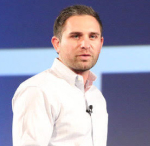2 Tips You Need to Maintain HIPAA Compliance on Social Media
As healthcare professionals, it’s your duty to protect the privacy and confidentiality of your patient’s health information. The Health Insurance Portability and Accountability Act (HIPAA) was enacted to help everyone with access to patient health information do just that.
HIPAA establishes national standards for protecting the privacy and security of individuals’ health information and applies to healthcare providers, health plans, and other entities that handle this information.
While HIPAA has been around for over two decades, the rise of social media has added a new layer of complexity to the issue of patient privacy. Social media platforms can make it easy to accidentally share HIPAA-protected information, putting patient privacy at risk.
In this article, we’ll explore what types of information are considered HIPAA-protected, why social media can be risky, and provide tips for staying HIPAA-compliant on social media.
What is HIPAA-Protected Information?
HIPAA-protected information, also known as protected health information (PHI), is any information that relates to an individual’s physical or mental health, the provision of healthcare services, or payment for healthcare services.
This can include medical diagnoses, treatment plans, lab test results, insurance information, and more. PHI can be in any form, including spoken word, electronic, or paper.
HIPAA requires covered entities to implement measures to safeguard PHI, including physical, administrative, and technical safeguards. Physical safeguards include secure areas for storing PHI, such as locked file cabinets or rooms.
Administrative safeguards include policies and procedures for handling PHI, such as training employees on HIPAA requirements. Technical safeguards include measures to protect electronic PHI, such as firewalls and encryption.
Why Social Media Can Be Risky
While social media can be a powerful tool for healthcare professionals to connect with patients and share information, it can also be a risk when it comes to patient privacy. Here are a few reasons why:
1. Accidental Sharing of PHI
One of the biggest risks of social media is the accidental sharing of PHI. For example, a healthcare professional might post a photo on social media of a patient they just treated, not realizing that the patient’s medical information is visible in the background.
This type of accidental sharing can happen easily, especially if healthcare professionals are not mindful of the information they are sharing.
2. Discussion of Specific Patient Cases
Another risk of social media is the discussion of specific patient cases. While healthcare professionals may have good intentions in discussing patient cases online, doing so can put patient privacy at risk.
Even if patient names are not mentioned, details of their medical history can be enough to identify them.
3. Use of Unsecured Communication Channels
Social media can also be risky when it comes to communicating with patients. While some healthcare professionals might use social media to communicate with patients about their medical information, doing so can put patient privacy at risk.
Social media platforms are not secure communication channels, and any information shared on them can be vulnerable to hacking or interception.

2 Tips for Staying HIPAA-Compliant on Social Media
While social media can be risky for patient privacy, there are steps healthcare professionals can take to stay HIPAA-compliant. Here are a few tips to consider:
1. Avoid Discussing Specific Patient Cases
As we mentioned earlier, discussing specific patient cases online can put patient privacy at risk. Even if patient names are not mentioned, details of their medical history can be enough to identify them.
To stay HIPAA-compliant, healthcare professionals should avoid discussing specific patient cases altogether on social media.
2. Don't Share Photos or Videos of Patients Without Their Consent
Sharing photos or videos of patients without their explicit consent can also put patient privacy at risk. Even if the patient's face is not visible, additional private patient information may be visible in the shot.
Staying HIPAA-compliant on social media is crucial for healthcare professionals to protect patient privacy and maintain trust. HIPAA-protected information includes any information that relates to an individual’s physical or mental health, the provision of healthcare services, or payment for healthcare services.
Social media can be risky due to the sharing of PHI, discussion of specific patient cases, and use of unsecured communication channels.

What You Can Do on Social Media
While sharing PHI is not allowed by HIPAA guidelines, social media remains to be a powerful avenue for growing your clientele and promoting your services.
As such, keeping in touch with your audience with HIPAA-compliant content is still a strategy you should use to grow your practice.
Here are some social media projects you can pull extra hours for, or delegate instead to a HIPAA-compliant virtual assistant.
1. Promos
Post updates on ongoing or upcoming promotions if you have any. This will attract people to find out more about your specialty and your services.
2. Medical News
Create content around breakthroughs in your field, general updates in the medical field, and other relevant updates that will build on your page's credibility.
3. Professional Achievements
Post any recognitions from award-giving bodies, or even simple milestones your practice has recently achieved. Showing growth shows success, and also builds on your credibility as a healthcare provider.
4. Events
If you are participating in local events or you just want to promote an event that will benefit your followers, make some content about it.
5. Advertisements
Create videos, photos, or graphic illustrations that remind your audience about your core services. You can even boost these kinds of posts to increase your brand's reach and visibility.
6. Staff Testimonials
Get some of your in-house staff to showcase your facilities and the culture of care that you provide your customers. Make your practice appealing to possible clients or patients by giving them a preview of what kind of reception they'll get.
7. General Advice
Without citing specific cases or patients, provide some general advice to your audience. Try creating short videos on common hazards to watch out for, simple wellness tips and advice, or even warnings about common unhealthy habits.
Like a public service announcement, this is one of the best ways where digital marketing and community health come together to grow and nurture your audience into regular patients and customers.
Bottom Line
Healthcare professionals can take steps to stay HIPAA-compliant such as avoiding discussing specific patient cases, not sharing photos or videos of posts, and not using social media to communicate with patients about their medical information.
By following these tips, healthcare professionals can use social media to connect with patients and share information while maintaining HIPAA compliance.
To protect patient privacy and maintain trust, healthcare professionals must stay HIPAA-compliant on social media. Protected health information (PHI) covers any health-related data, so any marketing collateral should be reviewed by the medical practitioner as well as an additional HIPAA-compliant administrative professional before posting on social media.
Are you a healthcare professional looking to start and build a presence on social media? If you need assistance creating content for social media as well as someone with an extra set of eyes to check marketing collateral for PHI, then Virtudesk has you covered! Please check here for more information about our virtual assistant offerings for healthcare professionals.
More Articles From Virtudesk:
Share this article
Meet our Most Trusted
Partners & Clients

Byron Lazine
Co-Founding Chief-of-Operations at BAM (Broke Agent Media)I’ve been using Virtual Assistants for years throughout all of my companies. Once we found Virtudesk the process got even easier and allowed us to scale out our hiring. Highly skilled and accountable professionals. 100% recommend!

Rebecca Julianna James
Realtor / Content CreatorBefore getting started with Virtudesk I had my doubts that they would find what I was looking for. I needed a very particular person to add to my team and let me tell you I am highly pleased! My virtual assistant Myril is the best! I am excited to grow my socialmedia accounts with her. Thank you Virtudesk!

Chelsea Erickson
Realtor La Belle RE GroupI am very happy with the assistance Virtudesk is providing for my real estate business. This is a newer position for my company and we are working through the creation and efficiency.















